Latest posts by Michael Gerber (see all)
- From Faith Current: “The Sacred Ordinary: St. Peter’s Church Hall” - May 1, 2023
- A brief (?) hiatus - April 22, 2023
- Something Happened - March 6, 2023
If you don’t know the blog Dangerous Minds, go take a look. I find it essential reading, and check it nearly every day.
This morning they posted a YouTube video which lovingly traces the evolution of Strawberry Fields Forever, which I’ve embedded below. You’ll doubtless recognize the tracks (from It’s Not Too Bad, Anthology and other places), but it’s a nice piece of work, a good use of the form, and well worth listening to.


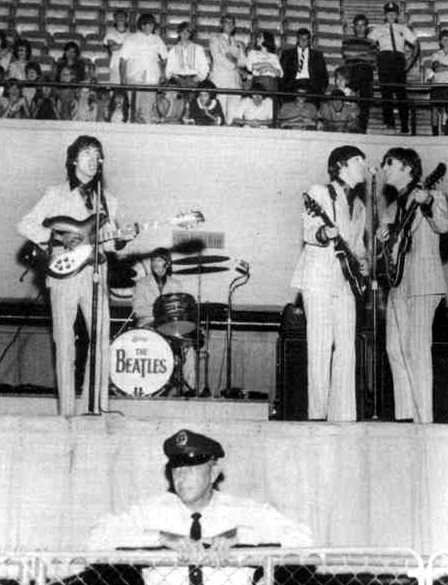
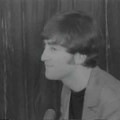

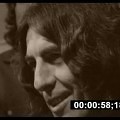
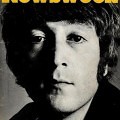
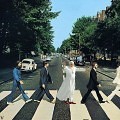
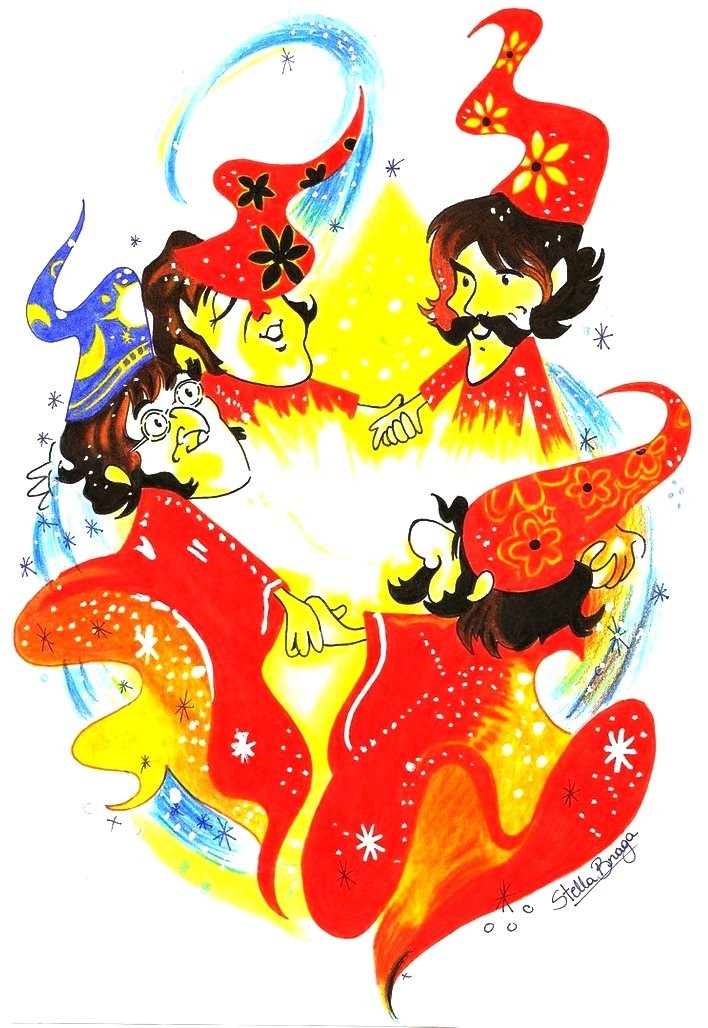
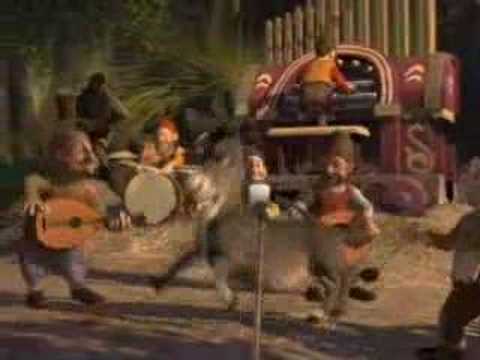
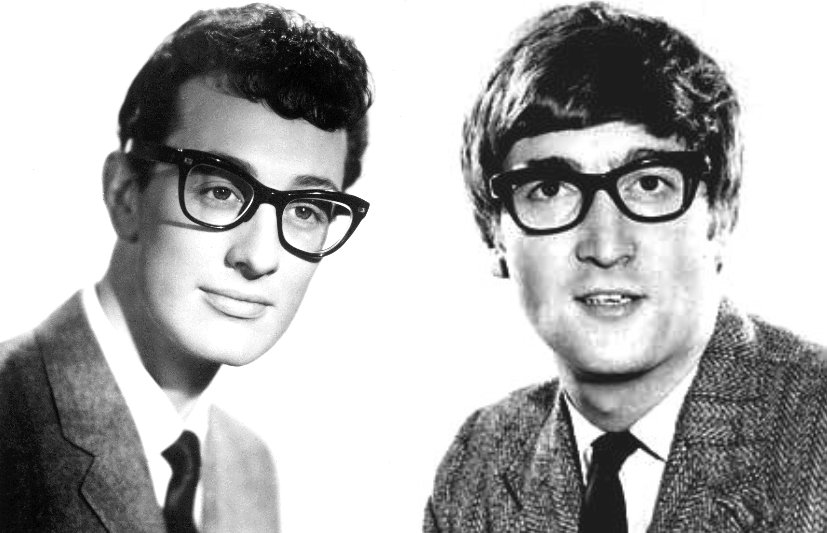
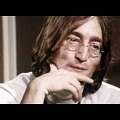
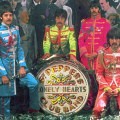
This is a great video. I’m always happy to hear the unedited Take 1 for the harmonies cut from the second verse in the Anthology version.
There is one thing I disagree with in the video, though–the creator’s assertion that the song has its beginnings in 1964, as evidenced by John playing on a melodica while waiting to go on the Ed Sullivan show and captured on film by the Maysles brothers. This idea was all over the place a couple of years ago in the form of a YouTube clip from the “First US Visit” DVD.
The problem with this idea is that there’s just not enough evidence given to point to John’s melodica noodlings as being definitively linked to SFF. The introductory phrase of the song on the mellotron does use a chord progression that John is shown playing on the melodica–that is, he’s playing a major triad and moving the root down two consecutive half steps–but this is a common chord progression that had been used in many, many places by the time that John got to it in 1964. The first bar and a half of the intro to SFF isn’t nearly as unique to the song as much as, say, its complete chord progression (F-F7-Gm-F-Eb-Bb) or the remainder of the melody that follows. The fact that the 1964 snippet is in a different key makes it even less likely (though only as supporting evidence, since songs can obviously be played in alternate keys). Plus, I’d venture to say that the melodica’s physical design strongly lends itself to the kind of progression he’s playing, and so probably has less to do with being the first appearance of a longstanding melodic idea John had than of John’s boredom before going on the show.
For further evidence of the generic nature of this chord progression, check out the Adagio from Khachaturian’s “Spartacus” here. I set it up to go straight to the ‘Strawberry Fields’ bit at 1.10: http://youtu.be/z6784n_4QCI?t=1m10s
matt m, I kind of agree and disagree. John clearly loved the descending pattern as he used it for a number of songs, so it’s not at all clear that the ‘melodica moment’ was directly related to the song Strawberry Fields.
But the melodica improvisation and Strawberry Fields both feature a (very similar) descending pattern for the same reason – John was fascinated by that particular progression.
It’s highly likely that John was merely replicating on the melodica something he would have done many times on a piano and I admit it’s way too much of a stretch to pinpoint that moment as the ‘conception’ of Strawberry Fields. But the similarity is striking enough to draw a line from one to the other.
Something else that video brought home to me was the key role Ringo played in the whole ‘psychedelic Beatles’ sound. So distinctive and much imitated.
John didn’t come up with the mellotron opening for Strawberry Fields. That was Paul’s contribution to the song. According to Geoff Emerick’s book and (I think) George Martin’s, too, as well as Mark Lewisohn’s research, it was Paul who was noodling around on their new toy (the mellotron) and came up with that opening bit.
— Drew
Drew, maybe so, but it would have been heavily influenced by the verse of Strawberry Fields which follows the same descending pattern.
@Drew–
NOW we finally know why John wanted to re-record it!
“Paul’s bloody stupid beginning…Yoko, could you play ‘Three Blind Mice’ backwards again?”
Well I just think Paul’s writing that bit shows that 1964 clip is just a guy playing a descending pattern and not some grand foreshadowing of SFF. And I would expect that Paul would write an intro that would mesh with John’s arrangement but the mellotron intro is not just a descending pattern, Paul gave it a twist. It’s a little bit of brilliance on the mellotron and should be acknowledged since it’s perhaps the most famous bit of the song and Paul devised it.
Michael: Hee. 🙂
— Drew
Ha, I might have known Paul would have been the real genius behind the song. Well, personally, I don’t think John’s given enough credit for deliberately implanting the idea for the intro into Paul’s subconscious over two years earlier with his melodica noodling, and/or blatantly suggesting it by featuring the same descending pattern in the verse of the song ;-p
Enough already. 😉
Agreed. For all we know, that could have been the moment where John discovered that trope and went on to hum it to himself for three years–but the point is that that clip is insufficiently solid evidence unto itself to say one way or another. And indeed, if you’re talking about chromatically-descending basslines in general, John, Paul, and George all seem to enjoy them immensely (about fifty percent of All Things Must Pass is built on them).
I know Emerick says Paul wrote the SFF intro in his book, but I didn’t mention it because he’s too much an unreliable narrator for me, with his constant, unexplained picking on George and inaccurate reporting of events as identified by others who I think are more even-handed (e.g. Ken Scott). Does Lewisohn attribute the intro to Paul in Recording Sessions? I can’t look; my copy is in storage…
We’ll never know for sure. The clip doesn’t provide solid evidence but my point is that it doesn’t have to – it’s an interesting connection, that’s all. I don’t want to pick over forensics for solid evidence or demarcate exactly who did what too much for fear of sucking the joy out of a good video and a truly great song.
At least, I think it’s not too bad 😉
@Matt M, I have the Lewisohn book right here, and just posted his comments about SFF Take 1.
Hmm. Ken Scott takes what I see as several cheap shots in his book at John and Paul (going out of his way to portray them negatively), so he’s certainly not some sort of “unbiased source.” IMO, Ken Scott, as an avid George fan, is just as potentially biased in his interpretation of events as you suggest Geoff Emerick might be — given, I suppose, his close relationship with Paul.
(As an aside: I don’t think Geoff’s observations about George Harrison are all that harsh and they were, after all, just his opinion. Just as the negative remarks Ken Scott makes were only his view. IF Geoff felt George was on the cranky side then Geoff is hardly the first person to suggest that. George’s own wife Olivia has talked about his crankiness.)
Ultimately, though, Emerick was there when the song was recorded. Lewisohn wasn’t. And if Emerick says Paul wrote the intro, that seems highly reliable to me.
— Drew
Oh and I didn’t mean to imply that Paul’s small bit of the song was the “best” part of the song. It obviously isn’t. But that haunting intro is, perhaps the best known musical bit of the song.
Apologies if I came on too strong. 🙂
— Drew
It’s OK, Drew, I was just pulling your leg 😉 The intro IS a key aspect of the song’s allure. Hats off to whoever devised it and set the Mellotron to ‘flute’.
The biggest mystery for me is why Lennon would want to record it. The production and eccentric arrangement are surely essential aspects of the song’s greatness.
It’s an excellent song in its own right (write?), of course, but the production elevates it to another level.
So what was lacking as far as John was concerned, I wonder?
Peter Deville wrote: “So what was lacking as far as John was concerned, I wonder?”
I think what was “lacking” was that it was a song that John could not deny, like the rest of the Beatles’ work. SFF was all him, very personal, and unquestionably great, but happened before he got hooked up with Yoko and “learned everything from her.” So, therefore, it had to be flawed.
If SFF wasn’t flawed–if the (spit) fans (spit) were right and his Beatles stuff was the apex of his career, then the whole Ballad of John and Yoko was a tragedy, not a triumph. It was his diminishment, not his flowering. And since he was sitting there with Yoko…
Or maybe John sincerely felt that he could rerecord it better–but by 1980, John’s artistic judgment simply wasn’t what it had been. And he knew that, which was why he was so freaked out that Double Fantasy wasn’t selling. He was proud, and frightened, and resentful and confused, all with good reason; he was screened from his friends and 99.99% of life, and surrounded by a shifting group of advisors picked by his wife. John hoped he didn’t need Paul more than he needed Yoko; hoped he wasn’t a fraud, a fool; and was wondering what the hell to do next. It cost him nothing to say “I’d re-record everything The Beatles ever did” while at the same time wondering that if the ’81 World Tour went well, maybe it was time to write with Paul again?
There was a period in the early days when John’s taste was simply fantastic, unerring; as the leader of the band from 1957-65 or so, his “OK” was the one the other three looked for–the dynamic seems to have been, Paul suggests and John approves. And whatever George Martin did, for example, I’m sure it was with Lennon’s approval. (This is why George Martin felt so hurt whenever John slagged him in the press.
And this Lennon-centric working method is why John’s checking out after 1966 was reacted to so intensely, and resulted in Paul taking over more and more; which encouraged John to check out more and more.
In the 1980 interviews, remember that John’s almost never alone (ie, he’s always conscious of how what he says will make Yoko feel*), got a few topics he just wants to HAMMER, and has an album to sell (which wasn’t selling). Plus, he might’ve been a bit…altered. So I think all those things–not a clear-eyed appraisal of SFF–would explain his somewhat reflexive slagging of Beatles stuff (as in Lennon Remembers).
*I recall in the Playboy interview John talking about the Beatles tours being “Satyricon”–deftly being honest and destroying The Beatles’ image as nice guys in one fell swoop–but when pressed by the interviewer, declining to go into details because it would hurt Yoko. How would tales of her husband’s incredible misbehavior hurt Yoko? Yoko was a 45-year-old woman for God’s sake; the point was, rather, that Beatle misbehavior was off-message. Never forget, whether a given fact was true or not, he was selling us in those interviews.
“He was screened from his friends and 99.99% of life, and surrounded by a shifting group of advisors picked by his wife.”
That’s the part I will NEVER understand — why he allowed himself to be so sheltered, why he pushed away his friends, and especially why he allowed slimey PR hacks like Elliott Mintz (*shudder*) to get anywhere near him.
— Drew
John had a habit of following Paul and later being hypocritical about it.
John publicly scorned Paul’s song World Without Love for the lyric, “Please lock me away”.
However, John later wrote a song called I’ll Cry Instead with the lyric, “If I could get my way, I’d get myself locked up today”.
Paul navigated in London’s experimental art and music subculture for two years and infused The Beatles’ music with his influences while John slumbered in suburbia. When John connected with Yoko in 1968, suddenly John became “the artist” within the group.
Paul gets slammed for writing syrupy “granny music” but John was one of the biggest purveyors of Wimp Rock that ever penned a tune. Some edgy rebel John was!!!
To be fair to Mr Lennon, big difference between ‘Please lock me away’ and ‘If I could get my way, I’d get myself locked up today’. The first is submissive whereas the second is menacing and hints at dark intent.
Also, I think this ‘Paul was man about swinging London Town while John loafed in the Stock Broker belt’ has become a bit overplayed. No doubt there was a time when Paul’s avant garde input wasn’t fully appreciated but John was hardly a recluse during THOSE years and was open to new experience and ideas – probably a bit too much. Maybe Paul hit the clubs more regularly but that wasn’t to expand his intellect 😉
And John was the ‘artist’ in the group long before he met Yoko. Let’s not forget he’d had two books published and was the considered the more ‘intellectual’ Beatle, sometimes to his chagrin.
So Paul deserves credit for his avant garde/artistic/eclectic influence, but I don’t accept he was the sole driving force. The problem with picking over a lot of this stuff is that the group effort/effect gets underplayed, despite it being the key aspect, in my opinion – especially up to 1968.
@Peter, this is totally in the realm of opinion, but my sense is that as long as The Beatles were touring, Lennon really did spend their limited downtime holed up in Weybridge watching TV and smoking dope. Plus, he wasn’t very friendly under the best of circumstances. And had a wife and kid, which (whether they HAD to be) he felt as a brake on his life.
Goldman talks about (and with Goldman YMMV) the big change for Lennon with LSD being a much greater degree of friendliness and sociability. By Pepper-time that seems to have kicked in.
A couple of years ago I started deep research for a sequel to the Lennon novel I wrote, and started looking at copies of International Times, the London underground newspaper. McCartney’s all over it; Lennon’s nowhere to be found. One data point, but I really noticed.
I think the pressure of being a Beatle, plus being outside of London, really did discourage Lennon from being the art school student he once had been, until acid changed his mind a bit. John seems to have perceived Beatledom as a restriction on his artistic nature; whereas Paul seemed to feel it as carte blanche to meet anybody and get in anywhere. Both guys were massive powerhouses, obviously, but this reading seems to ring true to me. Certainly the general public considered John to be “the smart Beatle,” but IIRC John did not really leverage that into any highbrow or even middlebrow extra-Beatle endeavors until after 1967. What he did do before then–appearing on Not Only But Also, doing How I Won the War–wasn’t culture-vulture-y like McCartney.
Obviously we know a lot more about Paul’s activities because he wrote a whole book about them! Maybe Lennon was sneaky about it…but I don’t think so.
@Michael, I totally accept that Paul was the more active during those days and it’s clear John succumbed to his well-known lazy tendencies post-touring.
I suppose I’m talking more in terms of ideas and contribution. I think Macca has been quite successful in redressing the balance and getting his due credit for many of the experimental ideas he brought to the studio. But I think there’s a danger of seeing all the new and exciting stuff as being solely down to Paul.
Paul immersed himself in the arts and social scene in London while John got deeper into psychedelia and introspection. Each resulted in the new and exciting stuff. The combination means you get Penny Lane AND Strawberry Fields; it means you get A Day In The Life.
Both minds were open, I think.
P.S. I’m not disregarding George, or indeed Ringo, from the mix, of course.
@Peter, I think that’s totally right.
The interesting thing about John’s work is how personal it is, how digested the influences feel. A lot of people were taking chemicals in 1966-67, and making trippy music as a result. But Lennon’s psychedelia–“Tomorrow Never Knows,” “SFF,” “Day in the Life,” “Walrus”–these are all quintessentially John Lennon. What comes out is totally determined–totally controlled by–his internal process.
And when Lennon failed as an artist, IMHO, is when he was too anxious to fully digest an influence before releasing his version (“Revolution #9/Mary Jane,” some of his agitprop, some of his oldies)
Paul’s stuff is different, somehow. When he sets out to do music hall, it sounds like music hall. When Lennon does, it sounds like “Mr. Kite.”
Both are good, but the difference in process (and end product) explains why Lennon was often felt to be the artist, when he was actually quite isolated; and why McCartney was felt to be a lightweight when he was actually the one who first got to Stockhausen, IT, etc.
” John seems to have perceived Beatledom as a restriction on his artistic nature; whereas Paul seemed to feel it as carte blanche to meet anybody and get in anywhere.”
OK, I hope you don’t mind Michael but I’m going to steal that sentence and use it in future Beatles discussions. 🙂 What a great observation about both of them, distilled into one strong sentence.
And that observation explains why, for John, the break up of the band meant freedom (although it didn’t quite turn out that way; he just entered a different prison); while for Paul, the breakup of the band meant the loss of freedom, loss of access, and the loss of his armor in going out into the world.
Food for thought.
— Drew
Thanks, Drew, glad it rang true.
And it also explains John’s love-hate relationship with the fans, and why Yoko was able to screen his old pals out so effectively in the 70s.
I think the experience of Beatlemania–and the pressure of being Chief Beatle during that time–and being married, with a kid during it–was a real key to Lennon’s personality after. How could it not be?
@Michael, agree re Lennon’s psychedelia.
In a way, Strawberry Fields Forever both epitomises the psychedelia of those days, because of the nature of the song and its production, and transcends it, because it is quintessentially Lennon.
Pure speculation, of course, but perhaps the reason Lennon dreamed of re-recording it was that he didn’t fully appreciate the latter. Perhaps in hindsight he saw the psychedelic production as baggage of the times, rather than the unique and utterly appropriate vehicle that it was.
After all, as Mike Nesmith, a visitor to Kenwood around that time, observed: “John was not aware of who The Beatles were… None of them could actually know the force of their own work.”
Wow! What a great quote!
And thank goodness they couldn’t, because it would’ve probably wrecked their work–made it grandiose and pretentious, or at least self-conscious.
I really do think John saw what he did through the lens of a 16-year-old loving Elvis and Chuck Berry. And to someone like that, the special brilliance of SFF wouldn’t be appreciable; he would know it was HIS, and know that other people seemed to like it, but that its sound was quintessential to that time and thus somewhat inviolable–he wouldn’t get that.
(Just FYI, Michael) That 2-year-old youtube video on Strawberry Fields has been taken down ’cause of copyright blockades. Might as well delete the posting, huh?
I’m always torn about this. Partly the blog is a record of our discussion, so it should stay. But in that particular case it depends almost entirely on something that isn’t available at the moment. Opinions?
FWIW< I'd say add a note to the post that the video, sadly, isn't up anymore, but leave up the post and comments.
Myself, I don’t see any real quandary. When, as Michael points out, a blog posting pretty much depends wholly upon the video clip no longer available to view, it might make sense to delete that posting. And where a defunct video clip is only incidental to otherwise relevant to/fro from bloggers…, well, by all means, keep that up!
.
When, as Michael points out, a blog posting pretty much depends wholly upon the video clip no longer available to view, it might make sense to delete that posting.
.
I respectfully disagree. Videos pop in and out of youtube all the time. The exact video has probably been uploaded to youtube a hundred times. The discussions that follow here are too valuable (at least to me) to delete.
Hologram Sam, color me wised-up and chastened. (Don’t spend time on youtube, so wasn’t aware that the now-you-see-it, now-you-don’t phenomenon was the norm.)
Oh, damn. “WSDUPNCHSND” was going to be my new license plate. 🙂
That’s a challenge we must not let pass by: What do those letters stand for?
.
That’s a challenge we must not let pass by: What do those letters stand for?
“Wised Up And Chastened.” But my intent was not to chasten. I just enjoy reading the posts and comments here, even if the source video gets yanked.
.
I saw this a few days ago: Spotify Has Revealed the Top 10 Most-Streamed Beatles Songs
.
1. “Come Together”
2. “Hey Jude”
3. “Here Comes The Sun”
4. “Let It Be”
5. “Twist And Shout”
6. “Blackbird”
7. “I Want To Hold Your Hand”
8. “In My Life”
9. “She Loves You”
10. “Help!”
the Least-Popular Beatles Tracks on Spotify Are
.
10. “Honey Don’t”
9. “Thank You Girl”
8. “I’ll Get You”
7. “Long Tall Sally”
6. “I Call Your Name”
5. “The Inner Light”
4. “Slow Down”
3. “Bad Boy”
2. “Matchbox”
1. “Her Majesty”
Well, it’s official: My brain has left the building. Michael, HOW did I miss ‘getting’ this? Gotta eat more fish, if it’s still a ‘brain food’.
I turned up too late to hear the SFF evolution, but I did one of my own: https://www.facebook.com/groups/348271375246927/files